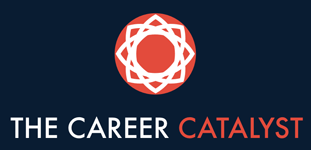
Many of us have been taught that we have to be “professional” at work, meaning we can’t let our personal lives impact what we do in the office. But that’s both impossible and not actually beneficial to anyone!
A lot of people feel pressure to conform to whatever standards they see in the office, sometimes even suppressing personal values and beliefs for the supposed greater good. But if you’ve tried that, you know how bad it can feel, and how hard it is to squash your emotions about what’s going on in the rest of your life.
This professional conformity might feel safer, at least in the moment, but it also sometimes comes at a cost. Are you opting not to speak out about something that’s important to you? Are you dressing in a way that makes you feel uncomfortable? Are there ridiculous office policies you have to follow for no good reason?
Too much time putting up facades is not only tiring, it’s bad for us. Research indicates that a feeling of greater authenticity results in greater psychological safety, which, in turn, results in better performance. (Honestly, this makes sense when you think about it: if you’re not focused on efforts to be something you’re not, you can be focused on your work instead.)
So how can you be more authentic at work?
Start by determining what’s written in stone for you. What are you willing to be flexible about and what are you not? Some of this will be about your values, of course, but some of it will be about culture and fit, and some will be about your needs. For instance, in an office setting, I have a high need for my own space, with a door I can close, because I like to work in a way that can look and feel chaotic to others—if they have to see it. If I can close myself off from it, I can work in my favored way without stressing other people out.
Next, think about the times you’ve put a lot of effort into fitting in. What kind of effort were you putting in? How did it feel in your body? What steps were you taking? Sometimes this looks like trying to be perfect all the time. Sometimes it looks like fitting the mainstream culture. Or sometimes it looks like not voicing an objection you feel in your gut. Regardless, identifying what it means to be not authentic will help you define—and learn to live—the opposite.
Learn to accept your weaknesses, and to own your strengths. Despite what people say, you are unlikely to turn your weaknesses around, so aim instead to find ways to work with or around them so you are able to get your work done. But don’t forget that you have strengths, too! When people compliment you, take note. Start a list of things that you can look at periodically. And take special note when you accomplish things, even if you start small. Remember, being authentic doesn’t mean being unprofessional, so knowing your strengths and weaknesses will help you figure out how to best approach your work tasks, as well as how to make genuine connections with your colleagues.
Finally, determine the risks that make sense to you at work and the ones that don’t. If you identify as LGBTQ but your colleagues don’t know that, for instance, you may not want to be the advocate for those issues in the office. However, if you’re cisgender, you might want to be the one who pushes for gender-neutral bathrooms so your trans colleagues don’t need to shoulder that all by themselves. This isn’t about what you should do, but about what your inner voice tells you to do, so nobody else gets to determine this for you.
Doing all of this takes courage, so go at a pace that makes sense for you. You may be uncomfortable for a while, but you will thank yourself later. As Judy Garland put it, “Always be a first-rate version of yourself and not a second-rate version of someone else.”



